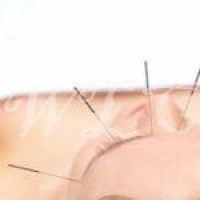Macrobiotic Diet
- Hits: 5522
Macrobiotics is a way of incorporating healthy eating and living into a lifestyle. Throughout history the Macrobiotic diet has been practiced by philospophers and physicians who strived to attain a natural order of life. This included eating a simple, balanced diet while living in harmony with nature. The modern Macrobiotic Diets were started in the 1920s by a Japanese educator named George Ohsawa. At the core of his macrobiotics theories is the essential ying and yang, which are the opposing forces that govern all life. In macrobiotics, the forces of yin and yang are kept in balance and this is said to help people achieve good health and longevity.
Common Macrobiotic Foods
The standard foods incorporated in a macrobiotic diet are:
-
Fresh vegetables should comprise 25–30% of food intake. Daily consumption of any of the following vegetables is highly recommended: cabbage, broccoli, cauliflower, kale, bok choy, collards, mustard greens, turnips, turnip greens, onion, daikon radish, acorn squash, butternut squash, and pumpkin. Vegetables to be eaten occasionally (two to three times per week) include celery, iceberg lettuce, mushrooms, snow peas, and string beans. Vegetables should be lightly steamed or sautéed with a small amount of unrefined cooking oil (preferably sesame or corn oil).
-
Beans and sea vegetables should comprise 5–10% of daily food intake. Especially recommended are adzuki beans, chickpeas (garbanzo beans), lentils, and tofu. Sea vegetables, including wakame, hijiki, kombu, and nori, are rich in many vitamins and minerals, and are easily added at each meal.
-
Whole grains—including brown rice, barley, millet, oats, corn, rye, whole wheat, and buckwheat—are believed to be the most balanced foods on the yin/yang continuum, and should comprise 50–60% of a person’s daily food intake. Although whole grains are preferred, small portions of pasta and bread from refined flour may be eaten.
-
Soups and broths comprise 5–10% of food intake. Soups containing miso (soy bean paste), vegetables, and beans are acceptable.
-
A few servings each week of nuts, seeds, and fresh fish (halibut, flounder, cod, or sole) are permissible. Brown rice syrup, barley malt, and amasake (a sweet rice drink) may be used as sweeteners. Brown rice vinegar and umeboshi plum vinegar may be used occasionally. Naturally processed sea salt and tamari soy sauce may be used to flavor grains and soups.
-
Fluid intake should be governed by thirst. Only teas made from roasted grains, dandelion greens, or the cooking water of soba noodles are generally considered acceptable. All teas with aromatic fragrances or caffeine are avoided. Drinking and cooking water must be purified.
-
To maintain proper yin/yang balance, all extremely yang foods and all extremely yin foods are avoided. All animal foods, including eggs and dairy products, are believed to have a strong yang quality. Extremely yin foods and beverages include refined sugars, chocolate, tropical fruits, soda, fruit juice, coffee, and hot spices. In addition, all foods processed with artificial colors, flavors, or preservatives must be avoided.
-
All foods should be organically grown. Produce should be fresh and locally grown.
Health Risks Associated with Macrobiotic Diet
The macrobiotic diet can be a very healthy diet plan. Even still, the strict diet plan may pose health risks to some people. Supporters of macrobiotic diets claim that macrobiotic eating has many positive health effects, and some health studies indicate that people on the diet have a decreased risk of heart disease and some forms of cancer. Despite these health benefits, some dietitians and nutritionists are sceptical of macrobiotic diets - especially the stricter macrobiotic diet plans. This is because the selection of foods is limited and may cause nutritional deficiencies.
Given the lack of meat, cheese and eggs (all being convenient sources of diet nutrition), an obvious health risk is vitamin and mineral deficiency. This lack of nutrition is almost certain to occur when following an extreme macrobiotic diet. Nutritional studies of children consuming a macrobiotic diet revealed growth retardation in 6- to 18-month-olds, lack of energy, and deficiencies of protein, vitamin B12, vitamin D, calcium, and riboflavin. Diet researchers also found that the breast milk of mothers on a macrobiotic diet contained abnormally low levels of vitamin B12, calcium, and magnesium. Another diet health study associated macrobiotic diets with an increase in iron-deficiency anemia. Macrobiotic diets have also been linked with weakened bones and skeletal deformities associated with vitamin D and calcium deficiency.
The absence of animal protein in the macrobiotic diet may cause a deficiency of vitamin B12 unless you include unfermented soy products fortified with B12.
Macrobiotic Diets - Caution
If you develop any symptoms of general nutritional deficiency, such as fatigue, muscle and joint pain, poor concentration, irritability, or susceptibility to infections, please see your doctor.














